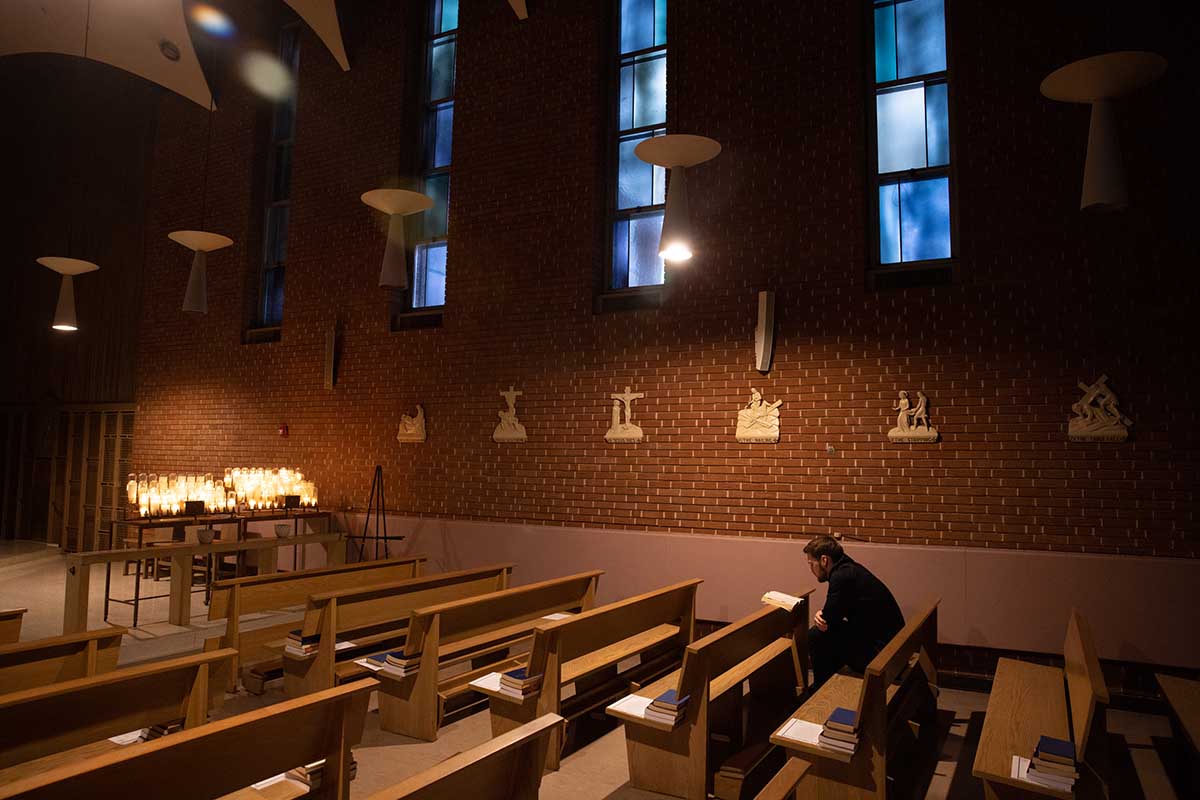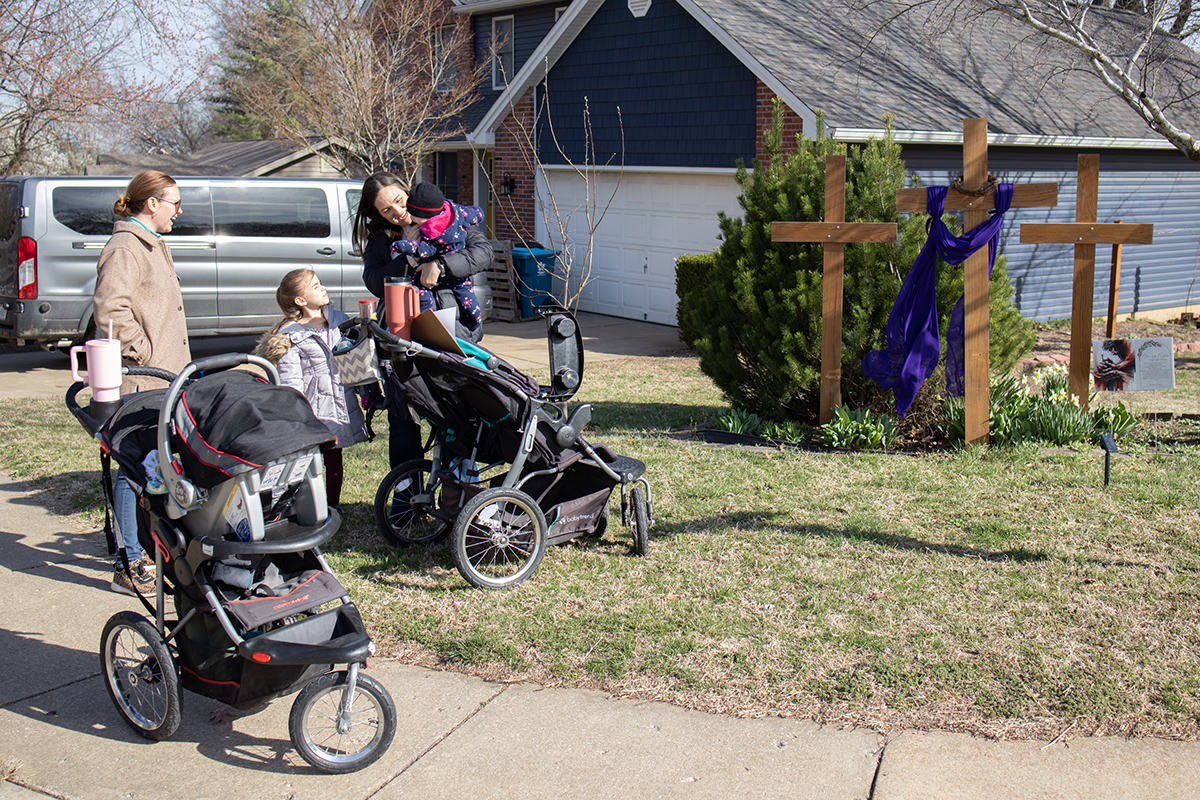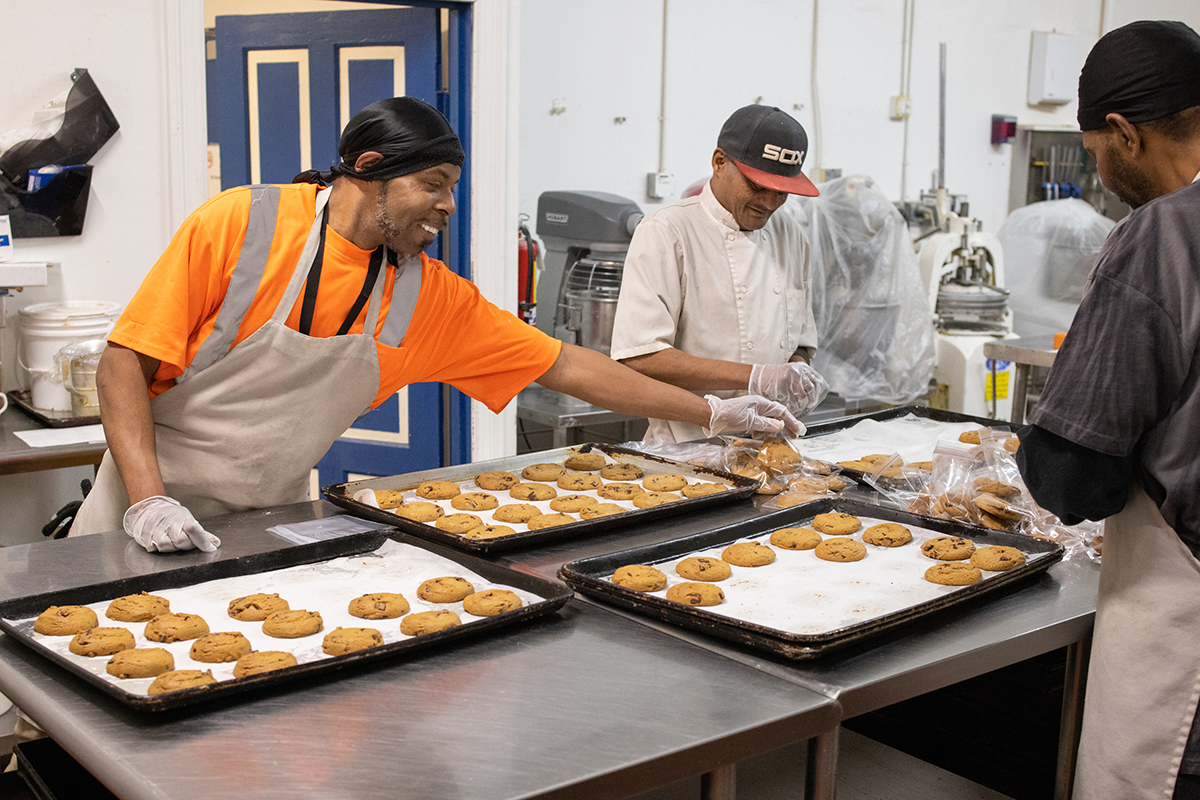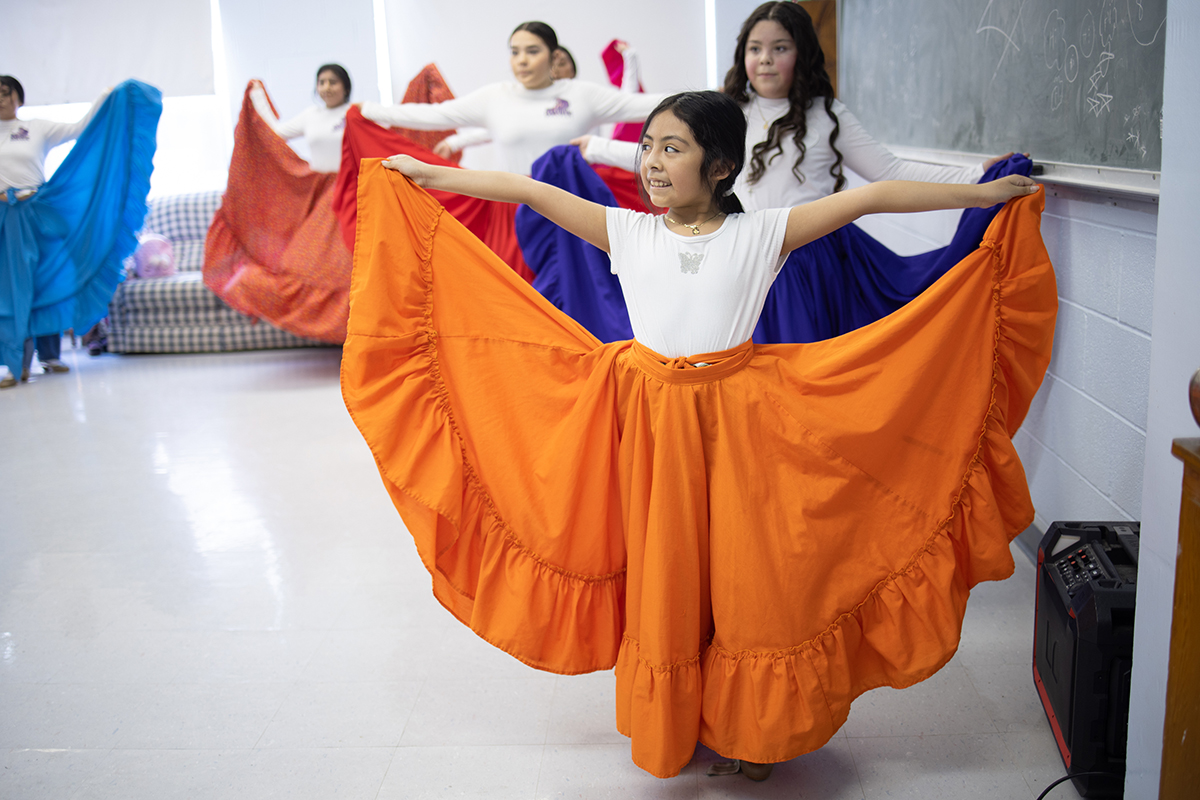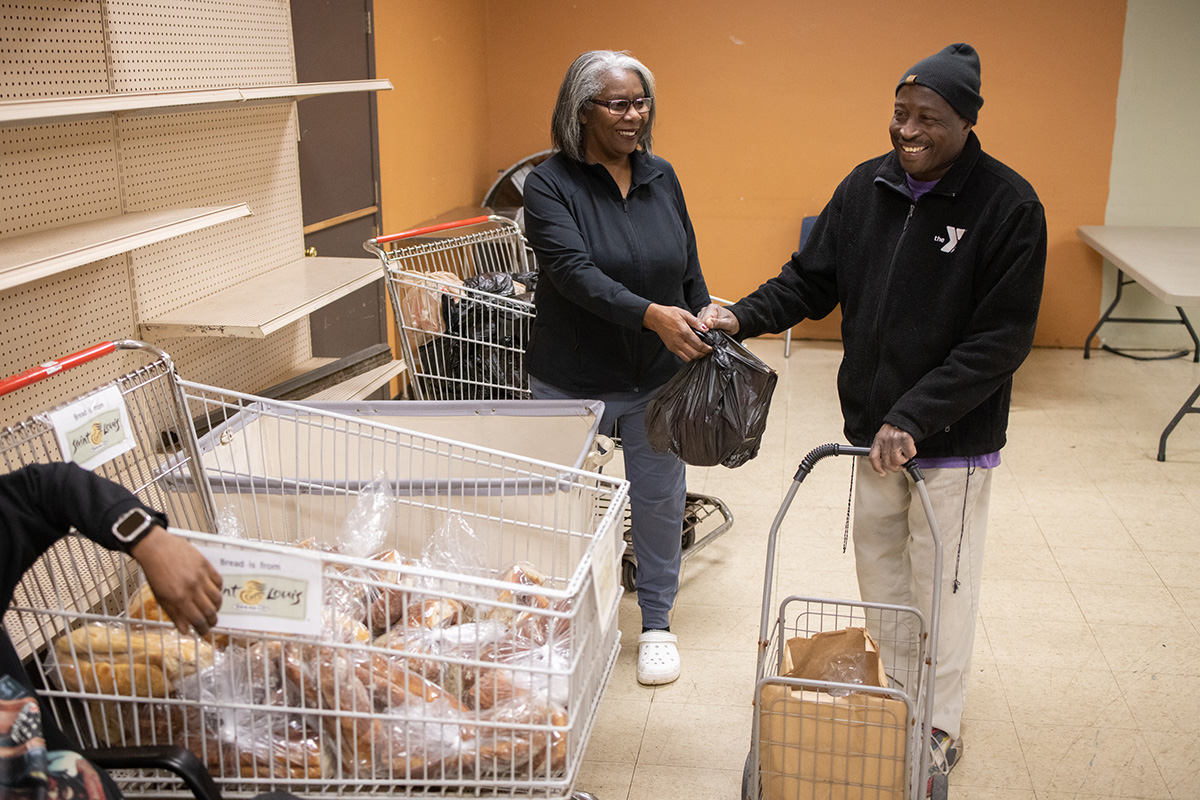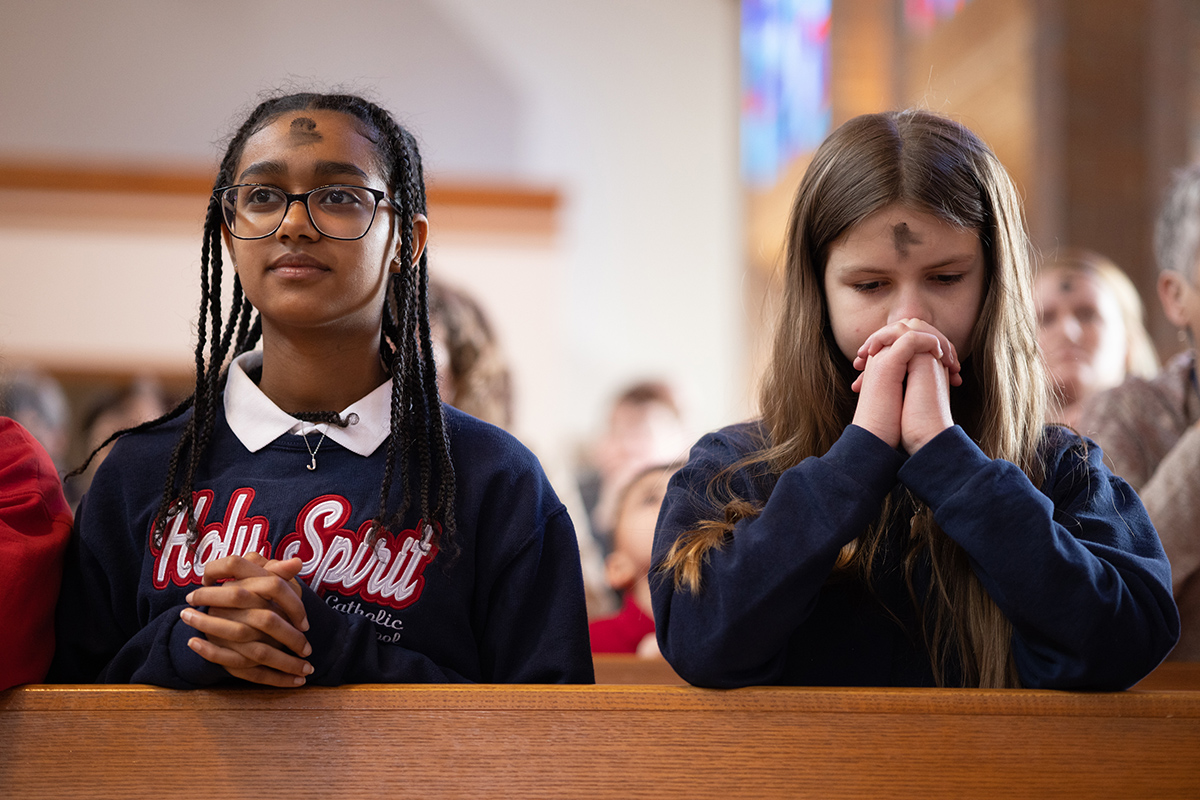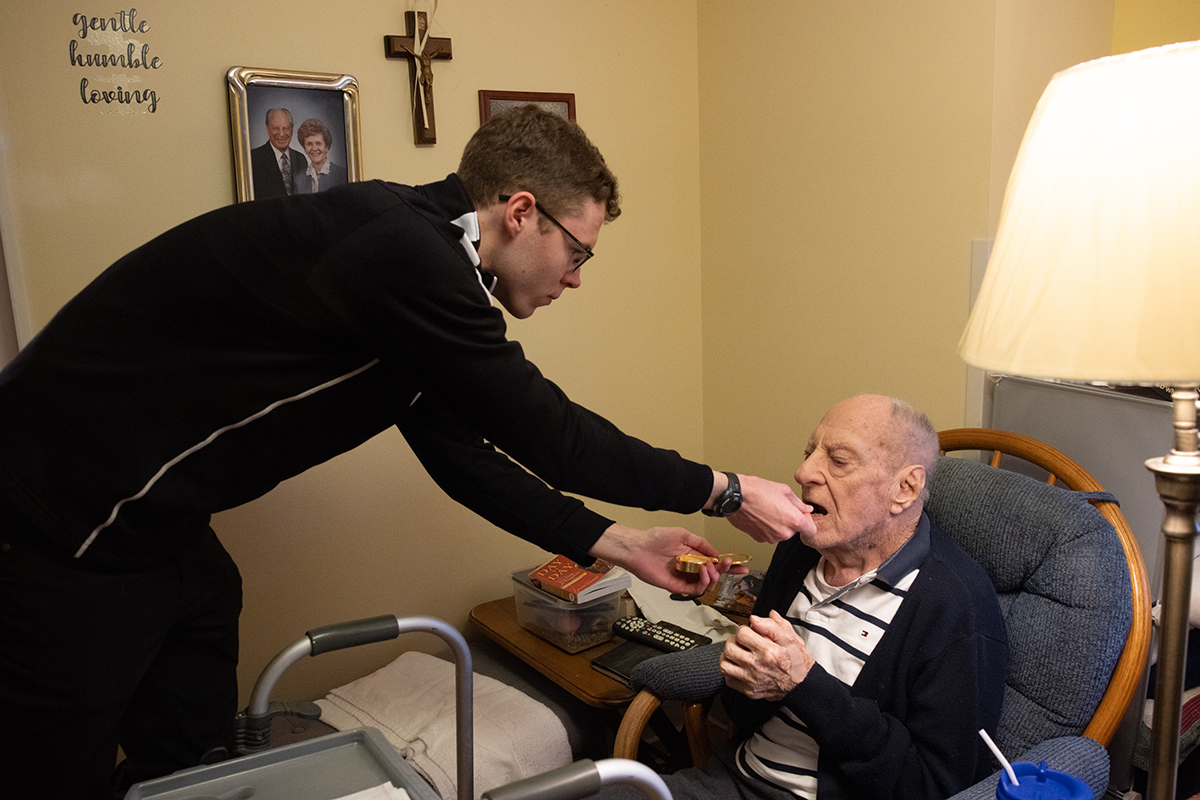Catholics offer advice on coping when life is suddenly quiet or full of new expectations, duties
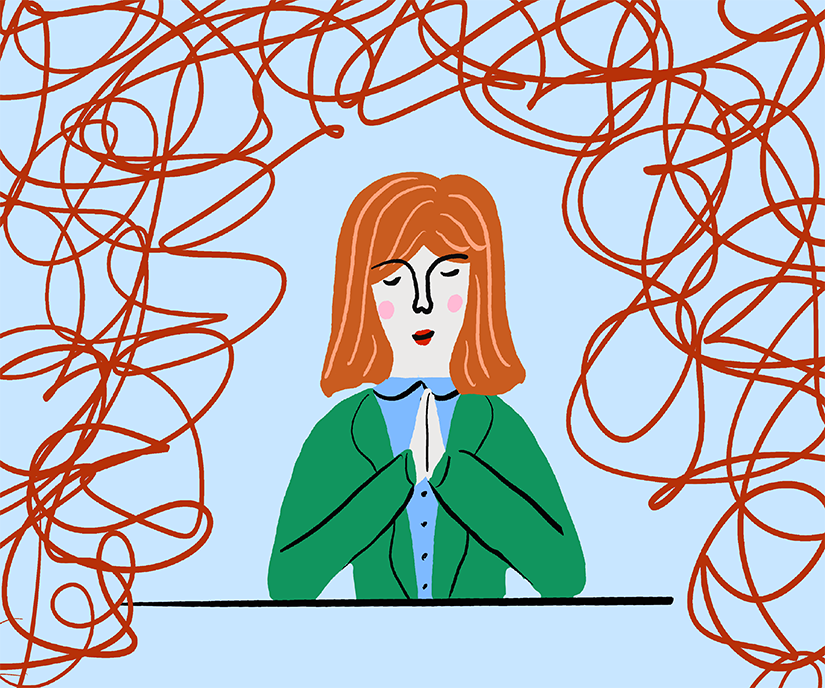
What to do when the daily routine is disrupted with no end in sight
Whether you’re a retiree passing time indoors, a parent of three children helping them with their school lessons while working from home, or any other situation, the COVID-19 pandemic is disruptive, at the very least.
Jesuit Father Frank Reale of White House Jesuit Retreat said for some, “suddenly their life has become a lot less active, while for others it’s become much more active.”
What everyone has in common is a level of anxiety of the unknown. “None of us know exactly how this is going to play out in the future,” he said.
There are some things we can do to lessen that anxiety of the unknown.
Praying as we are
Prayer is called for, he said, “but we have to pray according to the circumstances of our life. So for some people this is a wonderful opportunity to pray and reflect,” step back a little and reflect on priorities, your relationship not only with God but with other people and on things.
But for the person with a lot more responsibilities now, prayer will be different, and that’s alright, Father Reale explained. “The sacrifice of that person is to let go of the familiar patterns of prayer and work and time and relaxation.”

If you can’t sit and pray for a half hour as you did before, “that’s OK, because you can’t do what’s impossible. It is important to pray as we are. If I’m anxious, hassled, peaceful, fearful, whatever, that’s the ‘me’ that has to come before God.”
He looks at this time as an extension of the Lenten season. Sacrifices are there, but there’s also a fasting — the spiritual experience of waiting.
It’s also a time, he said, to recognize “we never lose the cross.”
He views the cross as transparent, he said, made of glass, and “as an Easter people we’re called to always be able to look through the cross, not to deny it, to recognize it and see the glory, promise, hope, encouragement and life that is ours because of it and because of what God has done through the risen Christ.”
Because of that, people shouldn’t be afraid or discouraged, Father Reale added.
A re-examination of our lives
As a Catholic who is Jesuit educated and has spent his entire career in Catholic higher education, Saint Louis University President Fred Pestello said people are turning to their faith as a source of comfort and inspiration. “We turn more to the Church for guidance, inspiration and hope,” Pestello said.
An Ohio native, he and his wife, via technology, tuned into Mass on Easter at his hometown parish, St. Dominic in Shaker Heights. “It was so comforting to see that church again where I typically return to every Easter,” he said, and to “hear that message at the center of our faith, the message of the Good News and the Resurrection.”
The virus and isolation has caused many people to re-examine how they’ve been living, Pestello said. “They’re questioning how they spend their money, how material-oriented they’ve been, what is or is not important, how they’ve been treating the planet.”
No one would have chosen to be in a pandemic, and its effects are devastating, he said. “But many of us are using it to think more deeply about why we are here, what is our purpose and how should we live. That is one of the blessings that have come out of it.”
He sees it also as providing time to “reach out to those we may not have reached out to or spending more time with those with whom they’re sheltered. My wife and I said we have not spent this much time together since graduate school. Each night we’re having dinner together, which would never happen at this time of the year given our lives. It’s bringing us closer to family and friends, too.
‘Small places of hope and joy’
Sister Virginia Herbers, ASCJ, director of spiritual formation in SLU’s Office of Mission and Identity, suggests taking a moment each day to deliberately “unplug” from the news, the demands of this “new normal,” and the big-picture concerns to take delight in “the small places of hope and joy that are right in front of us.”
Practicing the Ignatian way of finding God in all things, she said, “is an especially relevant exercise — in everything from the smallest daffodil to the most brilliant sunsets.”
Steve Givens, a retreat and spiritual director as well as a writer on issues of faith and spirituality, said the key either way is to create a specific time and place for prayer and spiritual reading. “Whether we are home all day alone, with only a spouse, or with a growing family that needs and deserves a lot of our attention, we need to set aside time to take care of ourselves spiritually so we can be more present and caring for those who need us. Starting the day with the daily readings, watching an online Mass, or just spending quiet time with God at the end of the day is really important.”
He recommends online resources such as a Facebook page of resources called CHURCH: Catholics Helping Us Reach Catholics at Home: www.bit.ly/3bb0i0i.
In an Easter message, Archbishop Robert J. Carlson wrote that “as troubling as the coronavirus continues to be, we know that love is stronger, and we see it in our concern for one another. The very sickness that drives us into isolation also highlights the reality of our unity as we pray for one another, connect through electronic means, and make sacrifices to take care of those who need our help. The Church is alive, and She is serving the world in this time of crisis.”
>> A hangout
Saint Louis Counseling is sponsoring a Mental Health Hangout on Facebook Live, a way of keeping the conversation about mental health going strong, with its executive director, Tom Duff, and clinicians Chelsea Link and Nicole Ostrowski.
Join the staff members of the Catholic Charities agency on Facebook Live on Thursdays from noon-1 p.m. to get professional, practical advice on getting through these trying times, to get questions answered and learn that it’s OK to ask for help.
For information, visit www.bit.ly/2Vob7pm.
>> Self care with La Salle
La Salle Retreat Center has started “Self Care with La Salle,” a new series with ideas for taking care of yourself physically, mentally and spiritually during the coronavirus outbreak. Tips will be posted daily on La Salle’s Facebook and Twitter accounts (@lasalleretreat).
La Salle’s grounds remain open to visitors during the day, including the grottos and Stations of the Cross. Visitors should maintain social distancing guidelines. An audio tour of the grounds also is available at bit.ly/2xwvGb6. The rereat center is located at 2101 Rue De LaSalle in Glencoe.
Words of wisdom on anxiety from St. Francis de Sales
St. Francis de Sales has said that anxiety is the “greatest evil that can happen to the soul,” only second to sin.
The doctor of the Church wrote on the subject more than 400 years ago in “Introduction to the Devout Life.” He said of anxiety, “if our heart be disturbed and anxious, it loses power to retain such graces as it has, as well as strength to resist the temptations of the Evil One, who is all the more ready to fish (according to an old proverb) in troubled waters.”
• When you desire to be delivered from any evil, or to attain some good thing, strive above all else to keep a calm, restful spirit, he wrote. “Steady your judgment and will, and then go quietly and easily after your object, taking all fitting means to attain thereto. By easily I do not mean carelessly, but without eagerness, disquietude or anxiety …”
• Examine yourself often, at least night and morning, as to whether your soul is “in your hand,” St. Francis de Sales wrote. “See whether your soul is fully under control, or whether it has not in anywise escaped from beneath your hand, to plunge into some unruly love, hate, envy, lust, fear, vexation or joy. And if it has so strayed, before all else seek it out, and quietly bring it back to the Presence of God, once more placing all your hopes and affections under the direction of His holy will.”
• If you find yourself growing anxious, commend yourself to God, and resolve to quiet your mind and find peace. This is necessary so that you may act from reason instead of impulse.
• Share your anxiety before a spiritual director, or a trusted friend, he also noted. “The heart finds relief in telling its troubles to another, just as the body when suffering from persistent fever finds relief from bleeding,” he wrote. St. Louis counseled his son in the same way: “If thou hast any uneasiness lying heavy on thy heart, tell it forthwith to thy confessor, or to some other pious person, and the comfort he will give will enable thee to bear it easily.”


